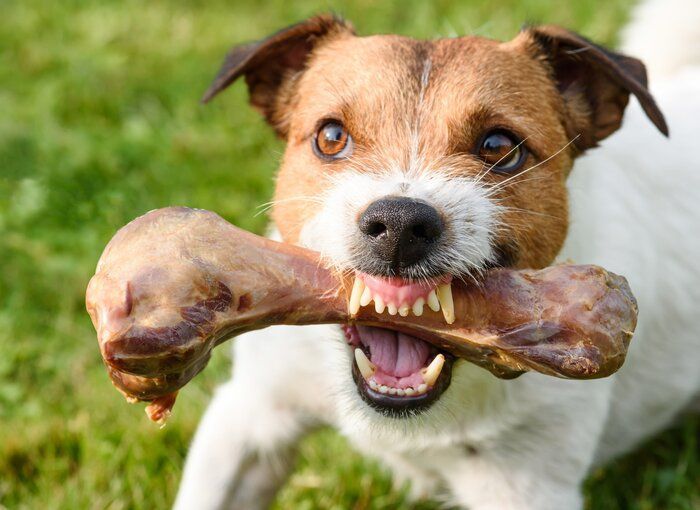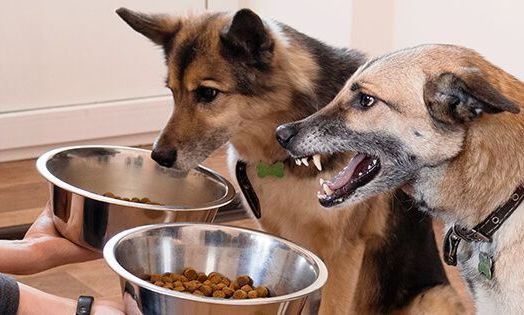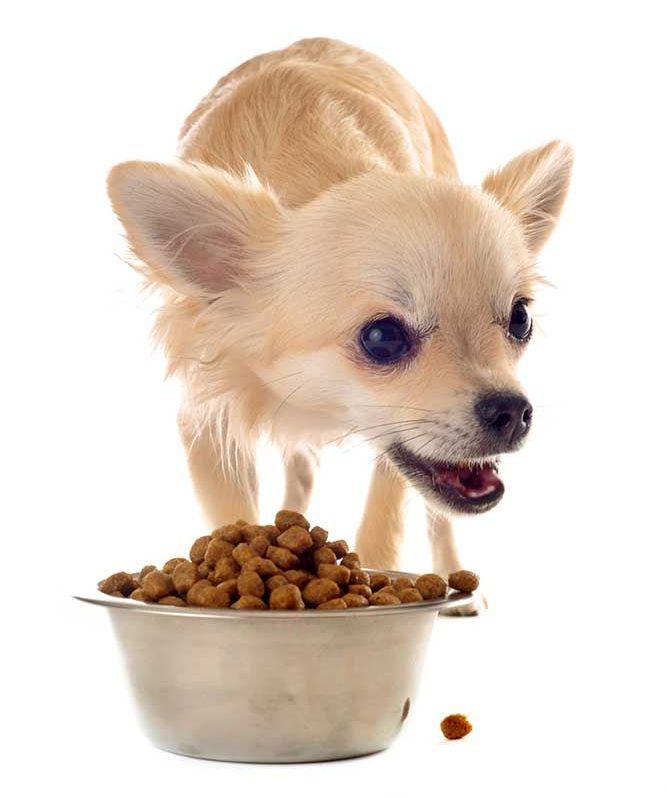Preventing Food Aggression in Puppy Training: A Guide to a Well-Behaved Pet
An Important Step in Puppy Obedience Training
Puppies are adorable bundles of joy, but like all animals, they have instincts and behaviors that need to be managed and trained. One common issue that many puppy owners encounter is food aggression. Food aggression occurs when a puppy becomes protective or possessive over its food, leading to growling, snapping, or even biting. This behavior can be concerning and potentially dangerous if not addressed, so let's discuss good strategies to prevent food aggression during puppy obedience training.
Start Early. Preventing food aggression should begin as early as possible. Ideally, you should start working on this behavior when your puppy is still very young, as early socialization and training are critical for their development. One effective method to prevent food aggression is to hand-feed your puppy occasionally. This can create a positive connection in their mind between food and your presence. Hand-feeding can also help teach your puppy to take food gently from your hand.
Practice the 'Leave It' Command. Teaching your puppy the "leave it" command is essential in preventing food aggression and to help them cultivate better self control. Start by placing a treat in your closed hand. When your puppy shows interest, say "leave it." If your puppy backs off, praise and reward.
Speak With A Dog
Training Expert
Speak With A Dog Training Expert
Thank you for contacting us!
We will contact you shortly!
Please try again later.
An Important Step in Puppy Obedience Training
Puppies are adorable bundles of joy, but like all animals, they have instincts and behaviors that need to be managed and trained. One common issue that many puppy owners encounter is food aggression. Food aggression occurs when a puppy becomes protective or possessive over its food, leading to growling, snapping, or even biting. This behavior can be concerning and potentially dangerous if not addressed, so let's discuss good strategies to prevent food aggression during puppy obedience training.
Start Early. Preventing food aggression should begin as early as possible. Ideally, you should start working on this behavior when your puppy is still very young, as early socialization and training are critical for their development. One effective method to prevent food aggression is to hand-
Speak With A Dog
Training Expert
Speak With A Dog Training Expert
Thank you for contacting us!
We will contact you shortly!
Please try again later.
feed your puppy occasionally. This can create a positive connection in their mind between food and your presence. Hand-feeding can also help teach your puppy to take food gently from your hand.
Practice the 'Leave It' Command. Teaching your puppy the "leave it" command is essential in preventing food aggression and to help them cultivate better self control. Start by placing a treat in your closed hand. When your puppy shows interest, say "leave it." If your puppy backs off, praise and reward.
Trade Up: If your puppy shows signs of food aggression, never forcibly take food away. Instead, use a "trade up" technique. Offer a more valuable treat or toy in exchange for the item your puppy is guarding. This strengthens the idea that giving things up to you brings about even better things. You also want to establish a consistent mealtime routine for your puppy; a structured routine will help them anticipate mealtime and reduce anxiety around food.
Additional Advice for Positive Dog Training
Handle your puppy gently while it's eating. Gradually increase the level of interaction, such as touching and petting, so your puppy becomes accustomed to being touched during mealtime. This will make your puppy less sensitive to handling around food. Always supervise your puppy during mealtime, especially in a multi-pet household- this ensures that there are no conflicts over food and allows you to intervene if food aggression behavior is observed.
Avoid Aggressive Play: Puppies often engage in rough play, but avoid games that encourage aggressive behavior. Discourage behaviors like growling or resource guarding during playtime to prevent them from becoming habits.
Seek Professional Help: If your puppy's food aggression is severe and persistent, it's advisable to consult with a professional dog trainer or behaviorist. They can provide specialized guidance and strategies to address the issue effectively.
Consistency in training is vital for success. Everyone in your household should use the same training techniques and commands. Inconsistency can confuse your puppy and hinder progress.
Trade Up: If your puppy shows signs of food aggression, never forcibly take food away. Instead, use a "trade up" technique. Offer a more valuable treat or toy in exchange for the item your puppy is guarding. This strengthens the idea that giving things up to you brings about even better things. You also want to establish a consistent mealtime routine for your puppy; a structured routine will help them anticipate mealtime and reduce anxiety around food.
Additional Advice for Positive Dog Training
Handle your puppy gently while it's eating. Gradually increase the level of interaction, such as touching and petting, so your puppy becomes accustomed to being touched during mealtime. This will make your puppy less sensitive to handling around food. Always supervise your puppy during mealtime, especially in a multi-pet household- this ensures that there are no conflicts over food and allows you to intervene if food aggression behavior is observed.
Avoid Aggressive Play: Puppies often engage in rough play, but avoid games that encourage aggressive behavior. Discourage behaviors like growling or resource guarding during playtime to prevent them from becoming habits.
Seek Professional Help: If your puppy's food aggression is severe and persistent, it's advisable to consult with a professional dog trainer or behaviorist. They can provide specialized guidance and strategies to address the issue effectively.
Consistency in training is vital for success. Everyone in your household should use the same training techniques and commands. Inconsistency can confuse your puppy and hinder progress.
Patience and Understanding: Above all, be patient and understanding with your puppy. Learning new behaviors takes time, and puppies may not always grasp them immediately. Reward positive behavior, and don't punish for mistakes.
If necessary, you can seek help from a professional puppy trainer to address severe cases. By following these steps and providing a loving and supportive environment, you can help your puppy become a well-adjusted and happy companion free from food aggression issues.
Patience and Understanding: Above all, be patient and understanding with your puppy. Learning new behaviors takes time, and puppies may not always grasp them immediately. Reward positive behavior, and don't punish for mistakes.
If necessary, you can seek help from a professional puppy trainer to address severe cases. By following these steps and providing a loving and supportive environment, you can help your puppy become a well-adjusted and happy companion free from food aggression issues.



